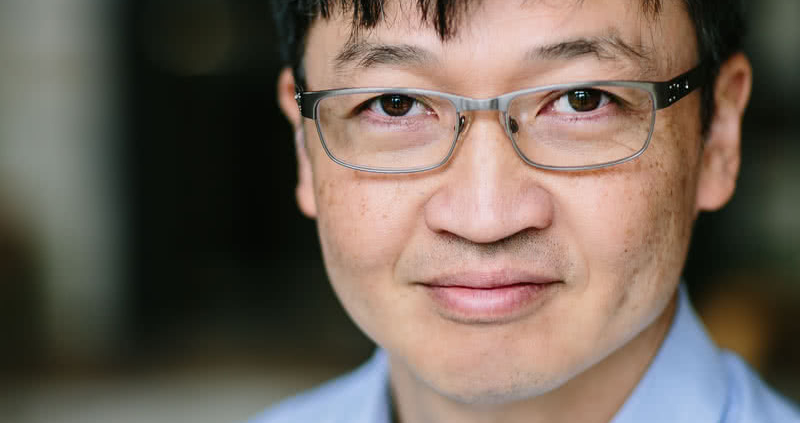Michael Louie
If a breakthrough medication for treating Type 1 diabetes were discovered tomorrow, physicians would know about it by the end of the year—right? Wrong.
“It can take up to ten years for sound medical practices derived from published, creditable research to be adopted by front line clinicians like your doctor,” says pharmaceutical educator Dr. Michael Louie. “We’re trying to shorten that gap as much as possible.”
Louie, 51, is one of twelve academic detailers employed by British Columbia’s Provincial Academic Detailing (PAD) program, a medical-education service offered through the province’s health authorities. The mission of the PAD program is to ensure positive health outcomes for the thousands of British Columbians who take prescription medications. “Our role and goal is to improve safety and effectiveness around prescribing,” Louie says.
Academic detailing started in Australia in the 1980s, but its roots can be traced to the Dust Bowl of the 1930s, says Louie. According to the story, farmers who had found successful ways to raise and harvest crops without damaging their land would travel from farm to farm to teach others their techniques.“ Academic detailing is a type of selling, but you’re not selling a product, you’re selling the truth,” Louie says.
Born in Hong Kong, Louie immigrated to the Vancouver area at age seven. He earned his bachelor of science in pharmacy from the University of British Columbia in 1989 before completing his doctorate in pharmacology at the University of Washington in 2009. After almost two decades as a hospital pharmacist, Louie joined the PAD service when the program launched in 2008.
Physicians are busy caring for their patients and have little time to stay up to date on every medication available, Louie explains. Often, bias can unknowingly creep into their prescription choices. For example, physicians may choose something they’re familiar with, take a recommendation from a colleague, or trust the word of a drug company representative. “A lot of [prescribing] is based on opinion and beliefs,” Louie says. “Like any opinion, it could be right and it could be wrong. That’s not the same as evidence.”
To diminish bias and improve physicians’ prescription choices, academic detailers review research about drug topics and then meet face to face, or sometimes online, with physicians to discuss their findings. Louie and his colleagues typically cover two or three topics per year, for example, prescription opiates, blood thinners and medications for heartburn, and stomach ulcers.
“We explain the truths around medications, the good and the bad, and let physicians judge for themselves,” Louie says. “Hopefully those pieces of truth will translate to better, safer practice and more efficacious prescribing that will improve the health of their patients.”
Employed with Fraser Health, Louie serves approximately two hundred physicians and a hundred or so other health professionals in the Fraser North region, which includes Burnaby, New Westminster, Coquitlam and Maple Ridge. To date, he has conducted research and education on 10 important drug topics; diabetic medications are next.
The field of academic detailing has one major opponent: drug companies. In the United States, “big pharma” companies are engaged in lobbying government to restrict academic detailing efforts. Prescribing based on the best available evidence usually results in patients taking fewer, cheaper or older drug therapies with proven efficacies, which hurts the industry’s bottom line, Louie says.
When he finishes detailing on a drug topic, Louie hopes physicians will have a better understanding of the different medications available and how they can achieve the best health for their patients. “Their patients will be better served for what we do.”

